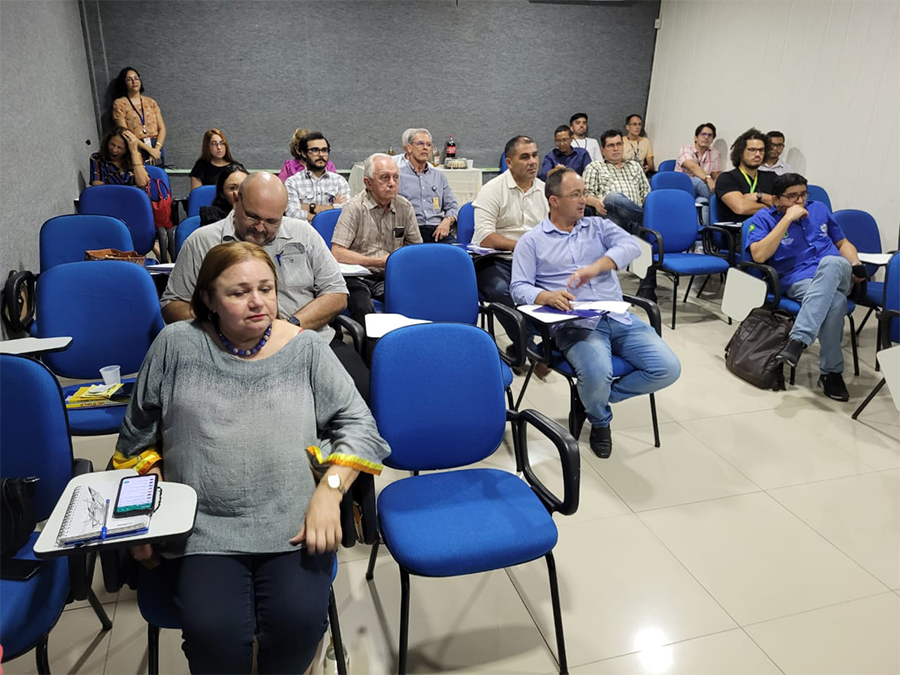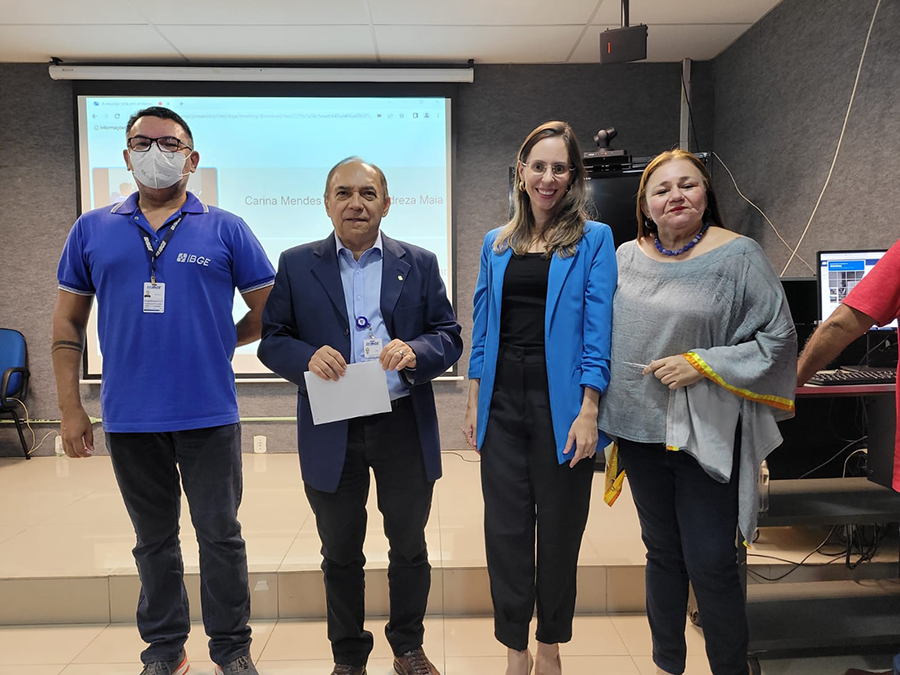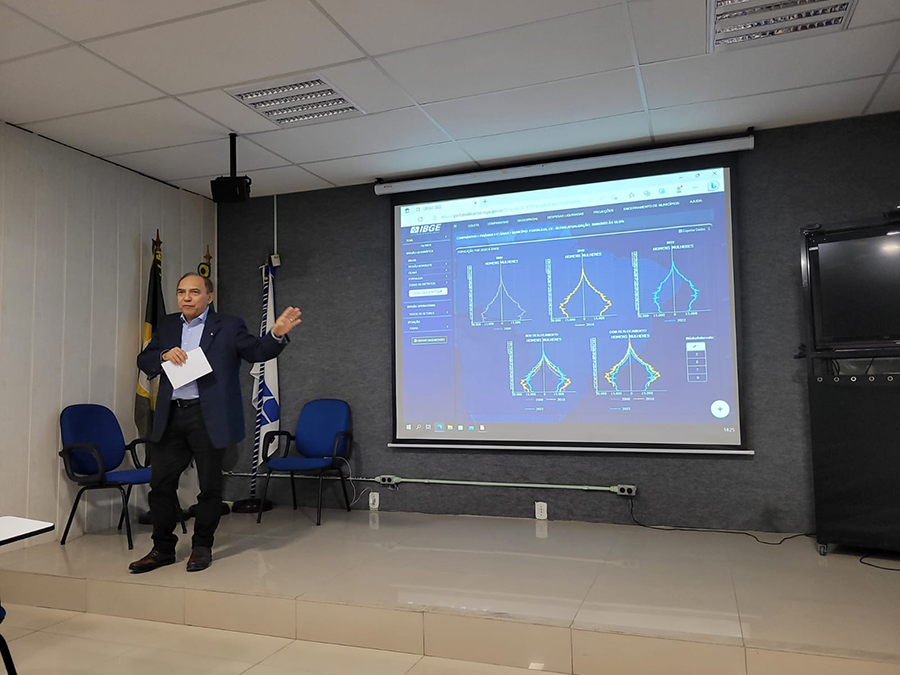Repac marks end of Census in Fortaleza-CE
May 29, 2023 16h08 | Last Updated: July 21, 2023 14h28
Having closed the compilation phase of the 2022 Population Census, which extended until last Sunday (28), municipalities in the entire country carried out the third and last 2022 Census Planning and Monitoring Meeting (Repac). It is the case of Fortaleza-CE, which promoted its third Repac last Friday (26) at the Francisco Cronje Auditorium, located in the headquarters of the IBGE State Superintendence in Ceará (SES-CE). IBGE officers participated in the meeting, as well as representatives from several partner institutions. The third Repac aims at assessing the census operation, as well as at showing some preliminary data.
The IBGE carries out Repacs in every Brazilian municipality, gathering local representatives, such as mayors, heads of office, city counselors, secretaries, servants, etc., as well as members of public and private institutions and of organizations of the civil society. As expected, Census Planning and Monitoring Meetings aim at monitoring each step of the census operation, as well as at establishing partnerships and gathering support to the operation. At least three Repacs are carried out in each municipality, the first one before the beginning of the Census, the second one during data collection and the third one in the end of the process.

The third Repac in Fortaleza-CE gathered officers and partners of SES/CE
Major challenges in the data collection in the capital
The third Repac in Fortaleza-CE presented some preliminary data, like the amount of interviews made, enumerated population and a preview of the age pyramid. Once again, the major challenges faced by the Census data collection in the capital were pointed out. Two areas were among the most difficult ones for the enumeration, registering high non-response rates, which were later reversed during the compilation phase.
On the one hand, the challenge of the subnormal agglomerates, areas in the urban outskirts like poor communities, slums, slums in deep valleys, slums in low-lands, slums in villages, stilt houses, etc. In these areas, the major barriers were the difficulty to find residents at home, access problems in cases of more precarious infrastructures and insecurity, especially in the areas dominated by criminal gangs.
On the other hand, the difficulty to reach areas of high-class condominiums, either horizontal or vertical, where higher-income people live. In the condominiums, enumerators were blocked by administrators, porters or electronic gates, preventing them to talk directly with residents. Not mentioning the refusals, which were quite more frequent among higher-class people, who allege several reasons for not answering the questionnaires.
“With the effort of our field teams, even with many adversities, we significantly reduced the amount of pending issues in these areas,” celebrated Theo Levi Sales, a coordinator of one out of three Census work areas in the capital.

SES/CE officers conducted the presentation of the third Repac in Fortaleza
Essential partnerships to complete the enumeration
Many were the strategies designed and executed by SES-CE to overcome the challenges of the census operation in Fortaleza. Among individuals and institutions, a number of partners cooperated to accomplish the operation in the capital of Ceará, supporting dissemination, infrastructure, logistics, etc.
The Fortaleza Planning Institute (Iplanfor) has been a major IBGE ally, supporting several phases of the Census, from planning to household data collection to the recently completed data compilation phase. Iplanfor was key to complete the enumeration in the capital, since it released agents of heath and fight against endemics to complete the data collection in the outskirts with higher non-response rates.
“Through this partnership, regional coordinators in Fortaleza streamlined the contact of our enumerators and supervisors with municipal agents. It helped a lot, we managed to significantly reduce the non-response rate,” highlights Francisco Lopes, the IBGE Superintendent in Ceará. “We are closing the data collection in the field and, from now on, we will continue to work indoors. The final release of the data will be on June 28. We could not produce a Census with such quality without the partnerships we had,” concludes the Superintendent.

The IBGE Superintendent in Ceará thanked partners that cooperated in the Census
